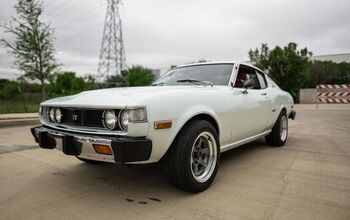Editorial: Why Chrysler and GM's Dealer Slash and Burn Won't Work

The grand poobahs at the PTFOA are Wall Street bankers and political insiders. None of them have built or run real businesses designing, marketing, selling and supporting high priced consumer products. Everything they think they know they learned from books and lectures, not from actually doing stuff. The old story goes: “When your only tool is a hammer, every problem looks like a nail.” To the Wall Street types, slash and burn is the hammer they know. Even President Hope has taken to using their favorite motto “Lean and Mean.” Surely we need lean, productive companies, but who needs mean?
GM and Chrysler, under orders from the PTFOA, are decimating their dealer network in the perverse expectation that doing so will lead to higher sales and/or profits. The word decimate comes from the Romans’ practice of showing displeasure with the soldiers by randomly killing one-in-ten of them. While the famously brutal Romans capped their ritual slaughters at 10%, GM and Chrysler are killing off more like 30% of these formerly loyal partners.
Many have made the argument that the bloodletting is necessary to improve GMAC’s cash flow, reduce GM and Chrysler’s inventory costs and give the remaining dealerships the chance to make better profits with which to support future sales efforts.
All of those arguments point to second order effects, not primary effects. GMAC’s floorplanning business, for example, has historically been wildly profitable. Credit worthy dealers paying their floorplan loans on a timely basis are a benefit to GMAC, not a liability. What bank hates having good paying revolving loan customers?
Those dealers which do not demonstrate ongoing creditworthiness should have their credit lines pulled, which in many cases will force them to close down. The floorplan and other second order arguments duck the main reason why financially viable dealerships should not be wantonly shut down by decree from Detroit or Washington.
More sales outlets means more places for customers to buy cars, more places selling the highly profitable OEM parts and more places paying the various fees which go along with being a franchised dealer. Franchise discipline practices which enforce quality standards are long overdue, but swinging the hatchet pell mell is no solution to that problem.
The dealerships are in fact the customers of the factory. No manufacturer of any product in history has successfully maintained or increased its sales volume or profitability by decimating its customer base and sales channel. Surely it makes sense to get rid of crooked and/or financial weak dealerships. The speed with which the recent slaughter has been carried out demonstrates simple minded meanness and not smart management.
The dealer slaughter frenzy all started with Wall Street analysts pointing out the numeric sales per dealership advantage which Toyota, Honda and other enjoy over the Detroit-Washington 2.8. Financial analysts are often much better at describing the disease than they are at prescribing the best medicine.
In 1998 when Daimler merged with Chrysler, not a word was said about the excess dealership millstone around Chrysler’s neck. In the eleven years since then the problems with Chrysler have boiled down to a series of botched new products. Dealers didn’t create that problem and nuking dealers will do nothing to solve it.
The rational thing to be doing right now would be a selective culling of dealerships based on quality and financial stability criteria. Most of the really bad dealerships will self-destruct without any help from Detroit or mean spirited zone managers. Instead of this, we are seeing summary decimation carried out as a result of the “appear to do something bold” political imperative.
The contrast between Ford and its cross-town rivals on this subject is quite telling. Ford is selectively culling the dealer herd and will likely come out the other side of this period with the strongest vehicle sales and service channel in North America.
Books and articles will be written about how even with greatly reduced dealer numbers, GM and Chrysler will continue to loose sales at an accelerating rate as the remaining dealers do not in fact pick up the slack from their slain comrades. The real reason the dealer slaughter is going on is to offer blood sacrifice to the gods of Washington and Wall Street. God help us.

More by John Horner
Latest Car Reviews
Read moreLatest Product Reviews
Read moreRecent Comments
- Corey Lewis It's not competitive against others in the class, as my review discussed. https://www.thetruthaboutcars.com/cars/chevrolet/rental-review-the-2023-chevrolet-malibu-last-domestic-midsize-standing-44502760
- Turbo Is Black Magic My wife had one of these back in 06, did a ton of work to it… supercharger, full exhaust, full suspension.. it was a blast to drive even though it was still hilariously slow. Great for drive in nights, open the hatch fold the seats flat and just relax.Also this thing is a great example of how far we have come in crash safety even since just 2005… go look at these old crash tests now and I cringe at what a modern electric tank would do to this thing.
- MaintenanceCosts Whenever the topic of the xB comes up…Me: "The style is fun. The combination of the box shape and the aggressive detailing is very JDM."Wife: "Those are ghetto."Me: "They're smaller than a Corolla outside and have the space of a RAV4 inside."Wife: "Those are ghetto."Me: "They're kind of fun to drive with a stick."Wife: "Those are ghetto."It's one of a few cars (including its fellow box, the Ford Flex) on which we will just never see eye to eye.
- Oberkanone The alternative is a more expensive SUV. Yes, it will be missed.
- Ajla I did like this one.


































Comments
Join the conversation
Rumor has it that the senior Obama administration officials on the Presidential Task force specifically targeted Republican political donors and forced some of the specific shutdowns on the auto companies against their will. Specifically, the allegations are that Obama administration officials chose an 'enemies list' of dealers to be cut, not the auto companies. This rumor is all over the conservative blogosphere right now. Can anyone confirm this? Example A: Clinton associate Mack McLarty keeps his six Chrysler dealerships. http://gatewaypundit.blogspot.com/2009/05/hope-change-marxism-did-obama-target.html Example B: Many republican donors have their businesses closed. http://libertarianrepublican.blogspot.com/2009/05/government-shutting-down-gop-owned.html
The political hit list rumors are rust more wingnut bs. http://www.fivethirtyeight.com/2009/05/news-flash-car-dealers-are-republicans.html For the list of the five bay area Chrysler dealers being shut down, look here: http://www.sfgate.com/cgi-bin/article.cgi?f=/c/a/2009/05/15/BUC617KN5T.DTL&hw=chrysler+dealer+closed&sn=003&sc=155